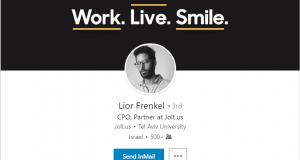
Editor’s Picks
Don’t Let Bad Journalism Get in the Way of a Good Online Education
By Henry Kronk
February 01, 2018
As digital technology provides more and more options for students, professionals, and parents seeking alternative education, it’s easy to get lost in the weeds. There is no shortage of information online about a given course, institution, technology, or given form of online education. But the system of delivery isn’t so reliable. Sure, if a given provider is a non-profit, you can access their 990 tax forms. If they’re publicly traded, you can find out how they make and spend their money. But when it comes to finding out about many new players in education and the EdTech space, members of the general public need to rely on journalists, bloggers, and writers in general to determine where a given form or product of education stands.
To do this, many readers stick to media outlets they trust. Discerning readers rely on their trusted outlets to fact check, provide independent reporting, follow some kind of mission statement, and observe certain ethics when reporting on education.
But unfortunately, many sites that have a large readership frequently put out stories regarding education—especially ones that take a negative stance—without following the procedures that many readers might hope they would.
Examples abound. Two stories came out over the weekend that fit this description. The first and more forgivable of the two, “The problem with online charter schools,” was published by Vox. The second and more egregious—“Online courses don’t work, but education can still be disrupted”—came out in the print and digital version of Wired.
Let’s begin with Vox
The story produced by Liz Sheltens and Mallory Brangan is made up primarily of a five minute video. It’s unclear which of the authors narrates it. The video looks and sounds really good. It’s full of informative graphics, useful visual aids, and it tells the story of online charter schools in a convincing way.
The main conflict with virtual charter schools, as Sheltens/Brangan explains, is that they seem like a great solution for a lot of students. Kids who faced bullying, problems with mental health, or any number of other issues have had great success completing course work in a virtual setting.
But here’s the catch: virtual students statistically perform much worse than traditional students. “One way that researchers measure a school’s success is by looking at students’ test scores at the beginning and end of a school year and see how much they’ve grown,” the authors say. “In the most comprehensive study to date, researchers from Stanford University looked at 17 states with online charter schools and compared their yearly growth to traditional schools and other charter schools in those states that serve similar populations of kids.”
“They found that attending an online charter school had the equivalent effect of missing 180 days of instruction in math.”
“In most places, that’s an entire school year. In reading, students lost about 72 days compared to their peers in regular school.”
The authors quote a professor from Western Michigan University who backs up the conclusion that an online education is leaving students behind.
Here’s the problem. The main source of their information, the Stanford study, was published in October of 2015. In the world of education technology, that is seriously old news. What’s more, the study isn’t very comprehensive at all. It looked at virtual charter schools in just 17 states. In the U.S., regulation of charter schools occurs at the state level. Each state varies on what it requires from charter schools, their application process, and the barriers to qualify. Depending on the state, therefore, virtual charter schools can vary widely.
The results of the study certainly don’t look good, but the fact of the matter is that Vox is primarily going off of one study that was published over two years ago to speak about all virtual charter schools now. The video looks nice, the evidence seems compelling, but the authors skate over several details that might inhibit a reasonable person from jumping to their conclusion. Some charter schools are certainly run by for-profits who prioritize their margins over their students’ education. But other virtual charter schools, such as Stanford Online High School, outperforms national averages when it comes to SAT and ACT scores.
Virtual high schools also serve distressed communities. Following the highly destructive hurricane season last year, Florida Virtual Schools accepted 20,000 students from Puerto Rico and the Virgin Islands.
TL;DR The topic of virtual high schools is too dynamic and varied to paint with broad strokes in a 5:00 video.
And now to Wired
With his headline, Lior Frenkel asserts that “Online education courses don’t work, but education can still be disrupted.” That first claim is pretty broad. But in support, Frenkel offers only the following: “online education, which is accessible, affordable and relevant, hasn’t lived up to its promise. The rate of completion for those who sign up for an online course is only five to ten per cent. Sitting by oneself to watch a video course with Gmail and Facebook appearing in neighboring tabs is a challenge, even for the most focused students.” That hyperlink sends you to a May 2016 Wired story that asks, “Are MOOCs in danger of becoming irrelevant?” He also later mentions a 2017 report that by no means concludes that online courses ‘don’t work.’
This isn’t misleading writing; it’s downright sloppy. MOOCs certainly once suffered from very low completion rates, but the field has transformed at an astonishing rate. Coursera found that, when it started charging students for their specializations product, completion rates jumped from 10% to 60%.
Udacity reports similar numbers.
What’s more, saying ‘Online education courses don’t work,’ and then presenting only MOOCs as evidence is ridiculous. Today, online courses come in so many different forms that extend far beyond MOOCs. It’s like saying ‘Wild cats are terrible hunters,’ and focusing only on domesticated breeds.
How this story made it past a Wired editor and, not only online, but into the print version of the magazine is a pretty significant mystery.
A clue lies in the background of the author. He isn’t a journalist by any means. He’s more of a startup entrepreneur. Frenkel created the online education initiative nuSchool, and serves as a partner with others such as Jolt and altMBA. His story mentions two specific online educators that have the potential to disrupt education. Can you guess which ones they are?

“The altMBA takes place over the course of one month, during which participants are put through a rigorous curriculum of intensive study and work,” Frenkel writes.
And later: “San Francisco-based startup Jolt is creating micro-campuses in venues such as co-working spaces and function rooms.”
And nuSchool? It found it’s way into the story’s URL.
It turns out this isn’t even sloppy writing; it’s sloppy marketing.
Why This Matters for Online Education
Right now, online education is experiencing a crisis of trust. Future online learners want to learn as much as they can about online educators. But how can they expect to make an informed decision when the supposedly trustworthy writers who bring them each story use outdated information and, despite doing their research, fail to treat a nuanced subject with the deft touch it deserves? How can anyone trust a writer that isn’t even trying to accurately present information, but instead promote his own businesses? In the process of truly disrupting the education space, the media has a part to play. And there are too many instances in which they play that part poorly.









2 Comments